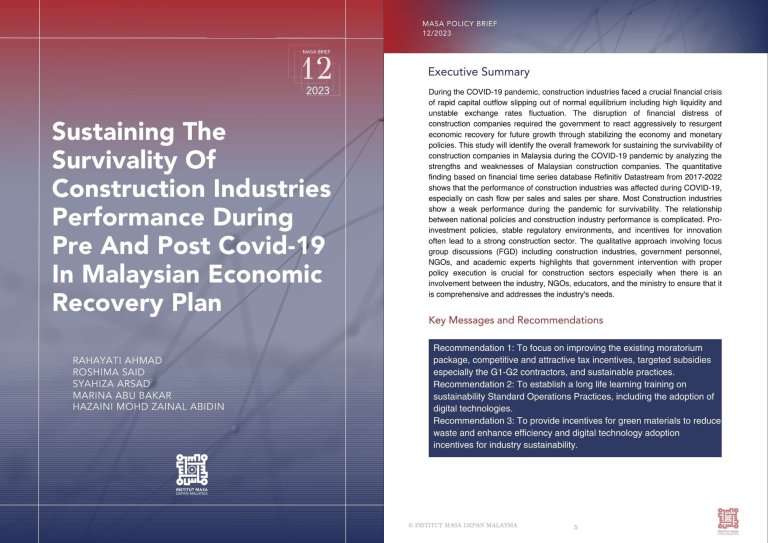During the COVID-19 pandemic, construction industries faced a crucial financial crisis of rapid capital outflow slipping out of normal equilibrium including high liquidity and unstable exchange rates fluctuation. The disruption of financial distress of construction companies required the government to react aggressively to resurgent economic recovery for future growth through stabilizing the economy and monetary policies.
This study will identify the overall framework for sustaining the survivability of construction companies in Malaysia during the COVID-19 pandemic by analyzing the strengths and weaknesses of Malaysian construction companies. The quantitative finding based on financial time series database Refinitiv Datastream from 2017-2022 shows that the performance of construction industries was affected during COVID-19, especially on cash flow per sales and sales per share. Most construction industries show a weak performance during the pandemic for survivability. The relationship between national policies and construction industry performance is complicated. Pro-investment policies, stable regulatory environments, and incentives for innovation often lead to a strong construction sector.
The qualitative approach involving focus group discussions (FGD) including construction industries, government personnel, NGOs, and academic experts highlights that government intervention with proper policy execution is crucial for construction sectors especially when there is an involvement between the industry, NGOs, educators, and the ministry to ensure that it is comprehensive and addresses the industry’s needs.
